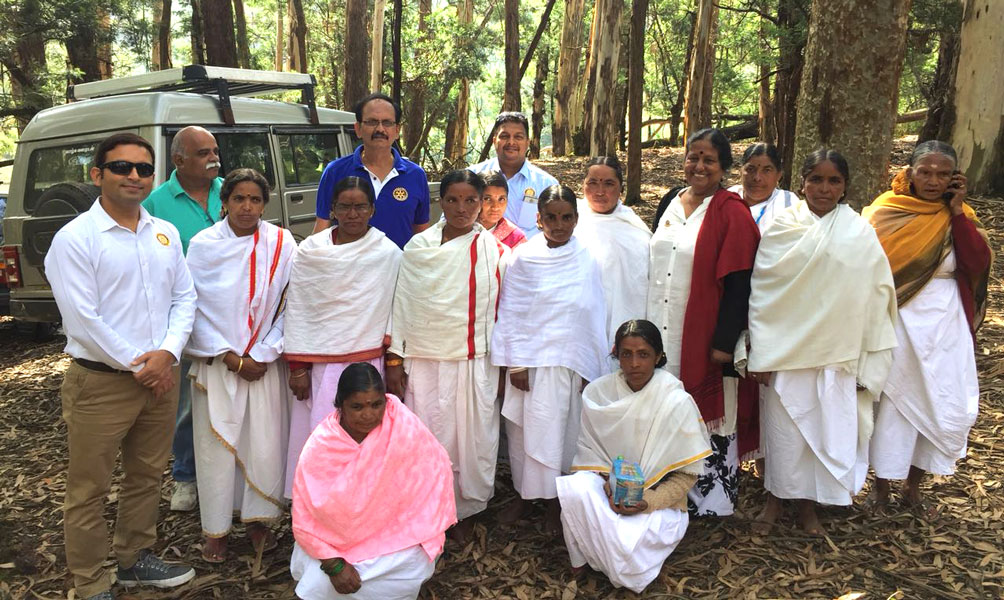Rotary Bangalore Downtown, in association with RC Bangalore Koramangala (D 3190), has installed solar lamps in 39 tribal homes at Imbet, a Kota village 60 km from Ooty. The nearest school from this village is 5 km away. Children travel on foot for some distance before boarding a bus to their respective government schools. “But that was not as big a problem as not having power in our homes. Children returned home just before sunset and were never able to complete their daily lessons. But thanks to Rotary, we now have light.” says Saraswathi Neeji, the head of the Kota community.

Indigenous to the Nilgiri hills, the 3,500-populace of Kotas are fine potters, musicians and musical instrument makers. Keen to keep up with the times, they have taken up mainstream jobs and primary education for their children. Saraswathi explains that unlike other societies, a Kota woman is held in high regard and has a greater say in choosing her partner for marriage, re-marriage, divorce and plays a big role in the economic development of her village. “We were unaware that we could avail free education until a few years ago. Now every Kota child, both boys and girls, goes to school,” she adds.
The villagers did not demand any money; neither did they relate stories of poverty to earn our sympathy.
— Raghu Allam, President, RC Bangalore Downtown
RC Bangalore Downtown was looking for a village near Bengaluru to execute the solar lamp project. “When we approached a few villages, the panchayat leaders said, ‘Give us the money, we will install the solar lamps ourselves.’ After months of searching for a village, Janet Yegnes Waren, the President of RC Bangalore Koramangala, identified the Imbet village “deep inside a forest with barely any road to connect it to other places. We were taken aback to see these people living in 70–100 sq ft houses, made of wood and mud, with just a bed, a shelf and a few vessels,” says Raghu Allam, President of RC Bangalore Downtown.
Both the presidents were pleasantly surprised as “the villagers did not demand any money; neither did they relate stories of poverty to earn our sympathy. The village had absolutely no electricity but it was strange to see that every household had a mixie and a grinder,” says Allam. Apprently, these have been given by politicians who have sought their votes in the past.

The village has been denied electricity since it is deep inside the forest. “We have been meeting government officials and politicians to get this village electrified. But with little success. And just like that, these Rotarians walked up to our village and set up the solar lamps in a day,” says Saraswathi.
The solar lamps do not need a pillar or post and require minimal wiring. The panel is set up on the roof of the house and is connected to a battery which feeds a mini LED lamp and a mobile charger. On the day of installation of the lamps “we were given a grand welcome with flowers, shawls and garlands. The villagers treated us to a typical vegetarian Kota meal. It was an amazing experience,” says Allam.
Saraswathi is now relieved that children need not stay with friends or school teachers who live closer to the town during exams. “All our lives we have lit oil lamps and candles, finished our daily chores by 7 pm, and struggled to keep wild animals away. But the solar lamps have changed everything. It was not the fear of the dark, but the anxiety that our children will also have to struggle like us that haunted us.”
“As we left the village,” says Allam, “they wanted assurance that these lamps will continue to provde light and requested us to provide school uniforms for their children.” The club plans to build concrete houses for these villagers and has begun looking for a partner club.





